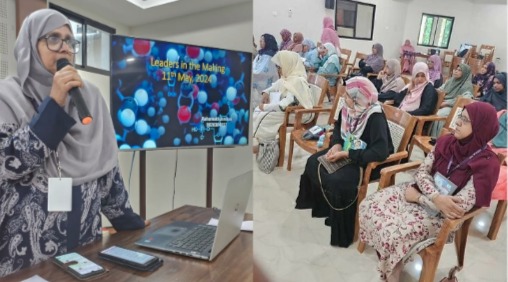– Rabia Basri
14 May 2024: In the scenic backdrop of Kerala, an extraordinary event unfolds biennially at the Ladies Meeqat, where the spirit of empowerment takes center stage. Fifty-five to sixty women, meticulously selected, embark on a transformative journey spanning five camps, each lasting one day and a half.
This initiative transcends mere gatherings; it serves as a beacon of enlightenment and growth. The curriculum, intricately designed, covers a diverse range of subjects, from Tehreek and leadership qualities to current affairs and the fundamental teachings of Islam, including Quranic studies and the intersection of religion and science.
A highlight of this endeavor is the profound discussions led by Rahamathunnissa A., National Secretary Jamaat-e-Islami Hind, along with several zonal leaders. Delving into topics such as leadership skills, property rules, and the complexities of fascism, they foster critical thinking and introspection. Engaging debates on women’s role in catalyzing social change enriches the discourse, with teams formed to argue both for and against the proposition.
During her session on leadership qualities, Rahamathunnissa A. emphasized the importance of possessing key characteristics for effective leadership, including communication, vision, integrity, emotional intelligence, adaptability, flexibility, collaboration, decisiveness, strategic thinking, humility, resilience, and accountability. Additionally, she highlighted the significance of developing the 3Ds: being disciplined, dedicated, and daring.
Moreover, the program goes beyond theoretical knowledge, embracing practical learning as well. Sessions on leveraging artificial intelligence to acquire new skills equip participants with tools to thrive in an ever-evolving world.
Recognition is granted to those demonstrating unwavering commitment, with a 100% attendance certificate serving as a testament to their dedication.
As each camp concludes, the impact reverberates far beyond the venue. This initiative stands as proof of the potential of women as architects of change, nurturing a cohort of future leaders primed to make a difference in their communities and beyond.
[The writer is JIH Assistant Secretary, Women’s Department]




